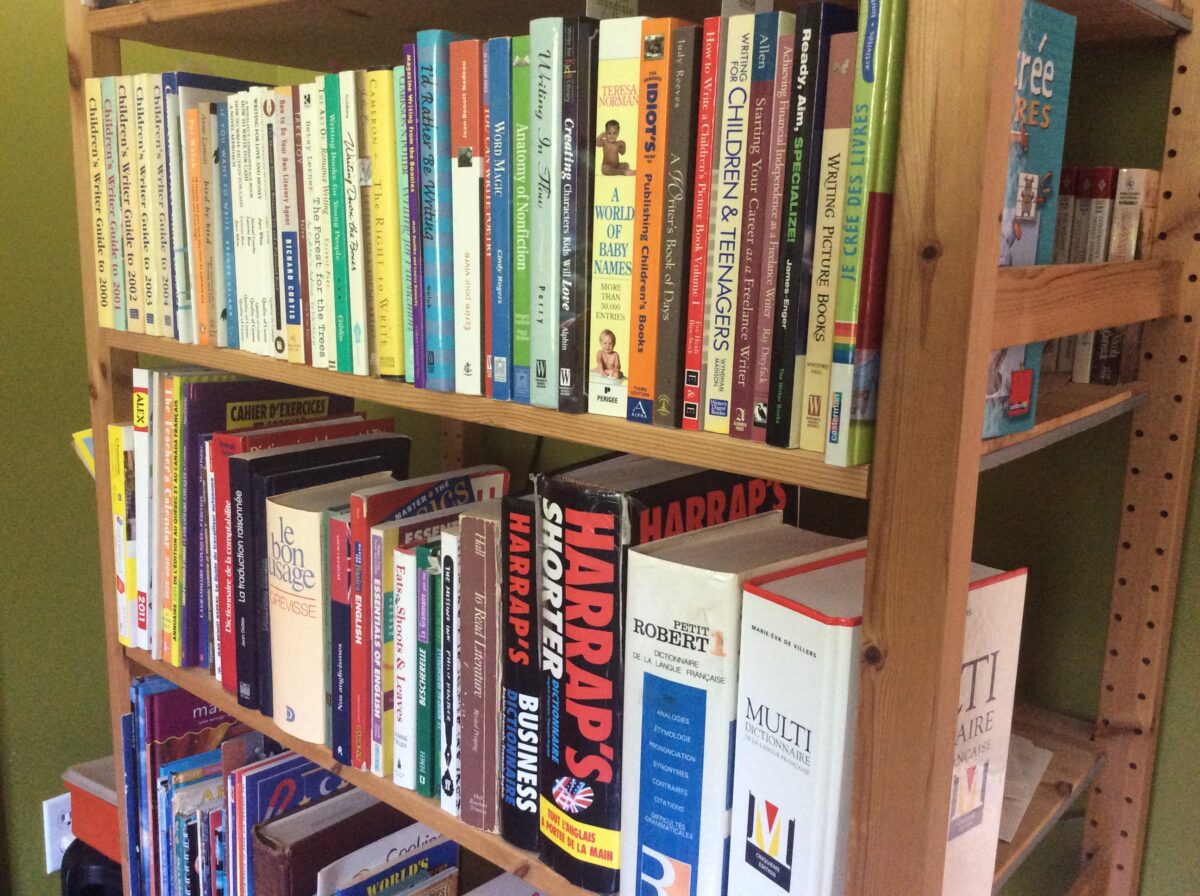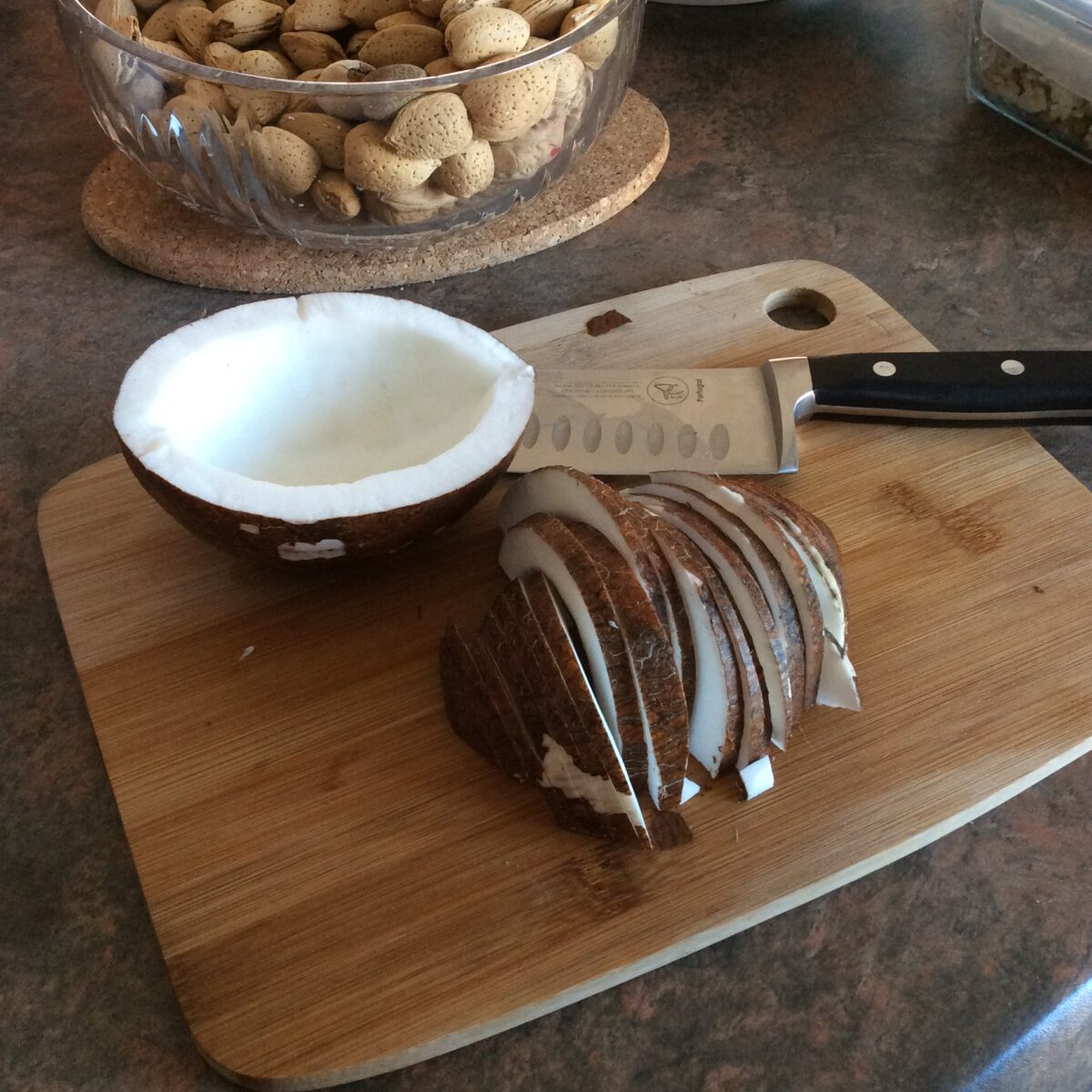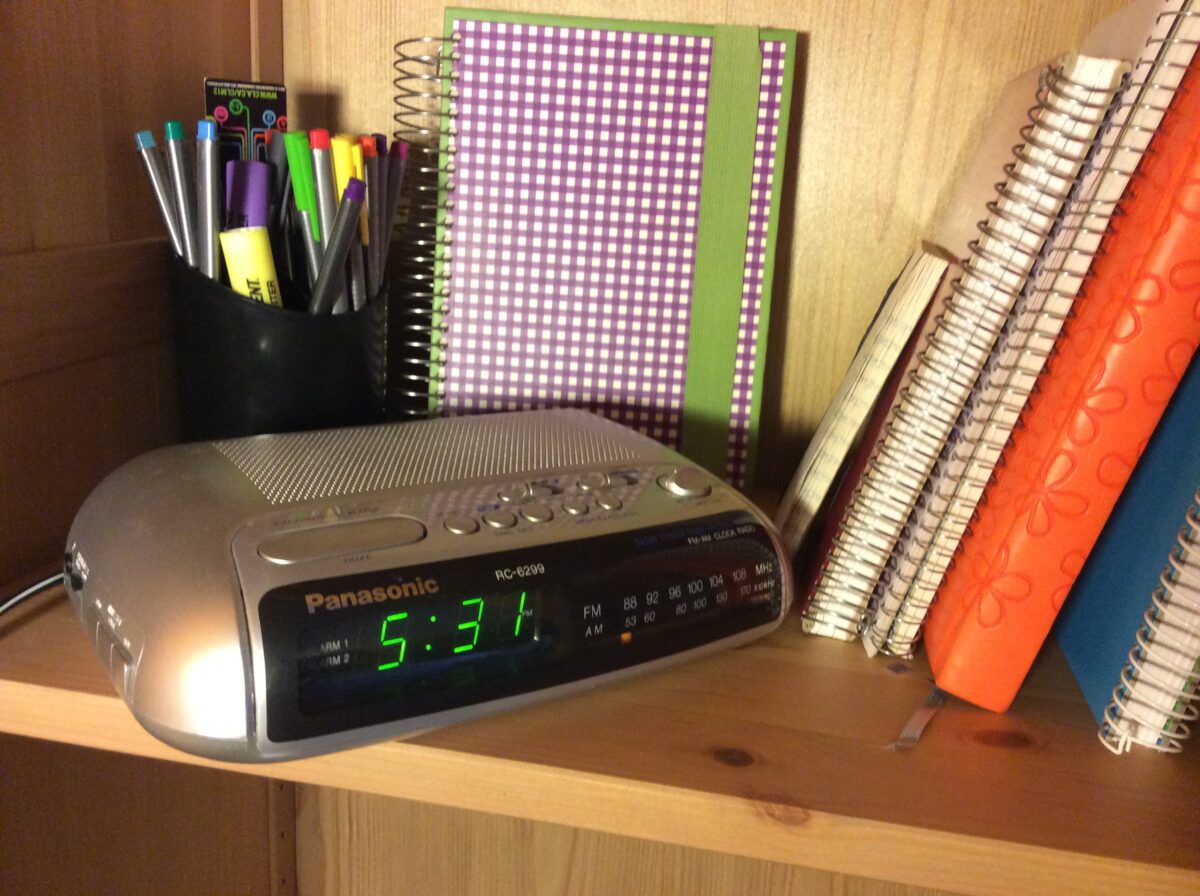Lack of time is not the only thing that can get in the way of our writing. The energy factor is way up there on the list. It may even possibly come in first place. Take this post for instance. I was very much looking forward to working on it, but ironically, as I wrote the first draft, I was really low on energy. My day started at five that morning when an impromptu crow concerto erupted outside my bedroom window. As I couldn’t go back to sleep, I tackled a translation that was due later in the afternoon. I worked on it for two hours before getting ready for my job at the library. When I got back home after two, I spent another two hours polishing my translation then moved on to do some market research for my writing. I finally stopped around six, ate dinner, and happily plopped down for a rest. Just as I was drifting off, a truck pulled up at the neighbours’ house to deliver a huge load of firewood – in terms of noise, the crows had nothing on these people! Since rest was out of the question, I thought I might as well get on with writing this post.
So how do you find the energy to write after a full day’s work? Do you give up and hope tomorrow will be better? That everything will go according to plan and by the time you sit down to write, you’ll be at your absolute best? Yeah, right! If you’d like a more reliable solution, here are five steps that have worked really well for me.
Step 1 – Listen to Your Body
Some people say you should push through the tiredness no matter what. I often do, just like I did for this post in fact. But you can’t do this indefinitely. I learned this the hard way after getting sick once from working non-stop for nearly three weeks. I was overloaded with translations and the only way to complete them all was to work seven days a week, squeezing in every available minute not already taken by my library job. My writing simply got swept under the rug while my family pretty much gave up on me. Eventually my body rebelled by making it impossible for me to look at a computer screen. My head started spinning every time I even glanced at one. The problem only resolved itself after I stayed away from my computer for a few days. Since then I’ve had to be more careful. Whenever I try to push myself too hard, my body immediately reacts and forces me to slow down, which brings me to Step 2.
Step 2 – Take a Nap
I can already hear many of you scoffing and sputtering. “Nap? Who’s got time for that? This isn’t preschool!” Take one anyway. It’s the best way I know to boost my energy and make my body happy. I often snooze during the early evening to help me last longer since nighttime is when I do most of my writing. I take naps during the daytime too on the weekends or just after I come back from the library in the middle of the afternoon to recharge my batteries. I’m very good at it. I can nap almost anywhere no matter what is happening around me – well, except for crow concerts and wood deliveries. When my son was little, we’d have nap time together. Now, I nap during my lunch breaks, in the middle of family gatherings, in the car (preferably when I’m not driving). All I need is a comfy seat and off I go. But what if you absolutely cannot nap?
Step 3 – Take a Deep Breath
Have you noticed how much energy you waste by tightening your muscles when you’re tense? It’s such a common state for many of us that I bet you barely notice when your whole body is tightly strung. In fact, I bet you’re tense right at this very moment. Want me to prove it? Take a looooooog breath. Breathe in through your nose and guide the air to your abdomen. Fill your tummy with air then release it slowly through your mouth. Doesn’t that feel great? Keep doing it as you continue reading. Better yet, do it as often as you can throughout the day. You’ll get the benefits of a nap without actually napping.
Step 4 – Eat Energizing Food
I love to experiment with food to find the perfect combinations that will give me an optimum energy boost. So far I’ve learned that if I have home-made porridge or a banana-peanut butter sandwich for breakfast, I’ll feel ready to take over the world. By mid-morning, I’ll snack on plain yogurt loaded with fruit and breeze on to lunch. Problems usually arise later during my nightly writing sessions. I never learned to like the taste of coffee or tea, so I never got hooked on these stimulants. Dark chocolate is another matter however. I used to eat a piece when my energy started dwindling. It worked really well for a while, but then I noticed I needed to eat two then three pieces to get the same buzz. I finally had to stop or risk an overdose! Which leads me to the next step.
Step 5 – Stop Eating Food That Doesn’t Energize You
Surprisingly, it’s what I stopped eating that has helped me the most so far. I gave up sugar about four months ago. Those who know me will understand what a drastic measure this was as I love everything sweet. But it was either that or change my whole wardrobe. All my clothes suddenly became too tight and I could not exercise as much as I needed to. After only two weeks of abstinence, I could slip into my outfits again no problem. But the benefits were so amazing that I decided to keep it up. For one, I stopped waking up several times every night due to hot flashes (I had been having them since my mid-thirties). Better sleep at night means that I get less cranky. I also get more stuff done since I need less naps, and I often make it through my nightly writing sessions now without any problems. Oh, and my moods are much more stable which makes me feel incredible and in control. The nice thing too is that I rarely have sugar cravings anymore. When I do, I immediately take a few sips of water. If the craving persists, I eat some raw almonds or fruit and it usually goes away. There are so many more things I could say on this subject that I could write a whole post about it – and maybe I will!



